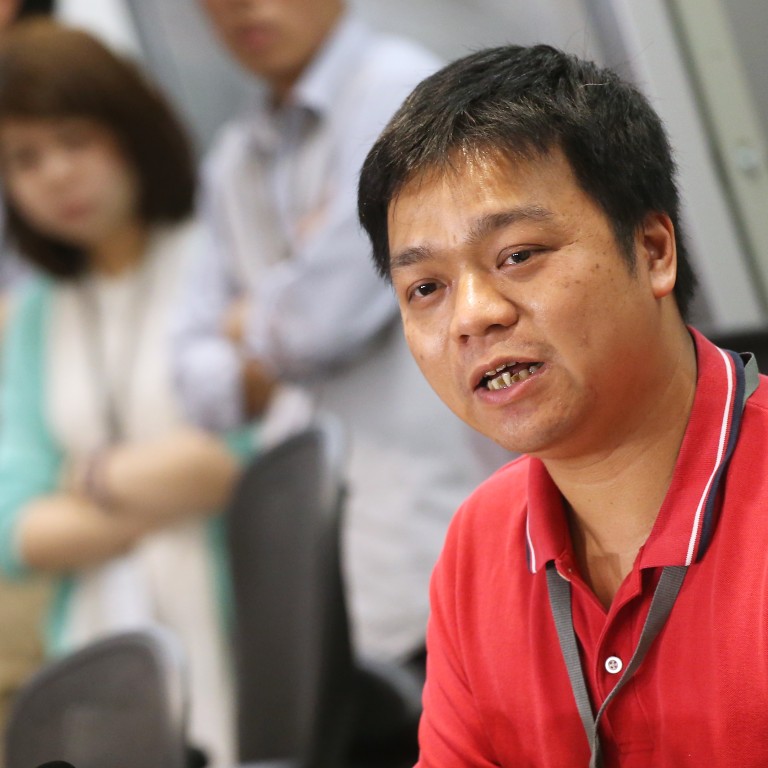
Hong Kong police must make amends for wrongful arrest of autistic man with a proper investigation
Albert Cheng says the force's handling of the case was riddled with errors and a half-hearted apology is not enough to pacify public outrage
It is a textbook case of a half-hearted apology that is too little, too late. Ten days after police wrongfully arrested and charged an autistic man with manslaughter, the force issued an expression of "sorrow" to allay the growing public outcry.
This was the first concession of sorts from the police since Stephen Lo Wai-chung took over at the helm from Andy Tsang Wai-hung on May 4, the same day the police laid a charge against the man, surnamed Au, over the alleged killing.
The new commissioner of police could have handled the blunder honourably by extending a proper, formal apology, bolstered by an independent investigation into any wrongdoing and procedural inadequacies. Instead, Lo sought to muddle through.
The police statement was written in Chinese and dispatched as a "response to media inquiries" exclusively to the Chinese-language media on Tuesday. The Police Public Relations Bureau did not bother to provide an English version. The text was not even posted on the Information Services Department's website on government news.
I asked several people conversant in both languages how the sentence with the term should best be translated. They agreed it is fair to say the police "expresses its sorrow" for the "unpleasant experience" of Au and his family. This newspaper translated the crucial phrase as "the force feels regretful". The statement does not elaborate on what exactly went wrong that resulted in the "unpleasant experience".
The arrest came after an elderly man was found unconscious on April 13 at a basketball court in Sha Tin. He died later that day. Au was arrested and detained for over 50 hours, then told he would need to appear in court.
The police failed on multiple counts in its handling of the case. A police interrogation tape reveals that Au was simply repeating the last few words of the questions put to him. Instead of seeking professional assistance, the interrogators took advantage of this pattern of parroting to solicit a confession. The written summary of the interrogation glosses over such details to purport an admission of guilt.
Au was also denied his psychiatric medication, even though his elder brother had told police about his medical need. The police explained that Au himself had not asked for the pills.
The most disturbing fact is that Au was filmed at a home for people with mild intellectual disabilities at the time of the crime. The officers initially ignored the alibi and later explained that they had to wait until Monday to corroborate the piece of evidence with the person in charge of the welfare group when he came to work.
That turned out to be a lie. The Sheng Kung Hui Welfare Council issued a statement on Tuesday, clarifying that it had furnished the police with the log on Au's activities on the day of the incident, complete with CCTV footage. The evidence was presented to police on May 3, before Au was charged. The council stressed that its centre operates around the clock. This release prompted the police to put out its "expression of sorrow" a few hours later.
Commissioner Lo has yet to speak on the case. He should not only apologise on behalf of the force for the "unpleasant experience", but also for the actual shortcomings of his officers.
It is debatable whether the police statement constitutes an apology. In any case, a sincere apology, unlike the one by the police, should be built on a candid admission of wrongdoing.
I have had my share of unpleasant experiences with the police. My online radio network, D100, runs a shop at the Sheung Wan MTR station. About 4.30pm on Wednesday, two officers came to the premises and looked at a poster of one of our programme hosts. My wife, who was showing passers-by how to use an internet radio, asked how she could help them.
One exclaimed: "So, is this a yellow-ribbon operation?" This was tantamount to police harassment of a business set-up and I have lodged a complaint with the police. Political neutrality, it appears, is no longer observed by the force.
Others have suffered unpleasant experiences at the hands of the police, the most salient being the case in which seven officers were filmed beating up activist Ken Tsang Kin-chiu last October during the Occupy protests. None of the officers involved has yet been charged.
The public is likely to give the new police chief some time before judging him. Lo should make the most of his short honeymoon period.
The least he could do to restore public confidence in the force is set up credible investigation panels to look into the unsettling cases of the seven officers, the maltreatment of Au, and other incidents of public concern. Justice must be seen to be done for those who have fallen foul of police action. And it needs to be done fast.

